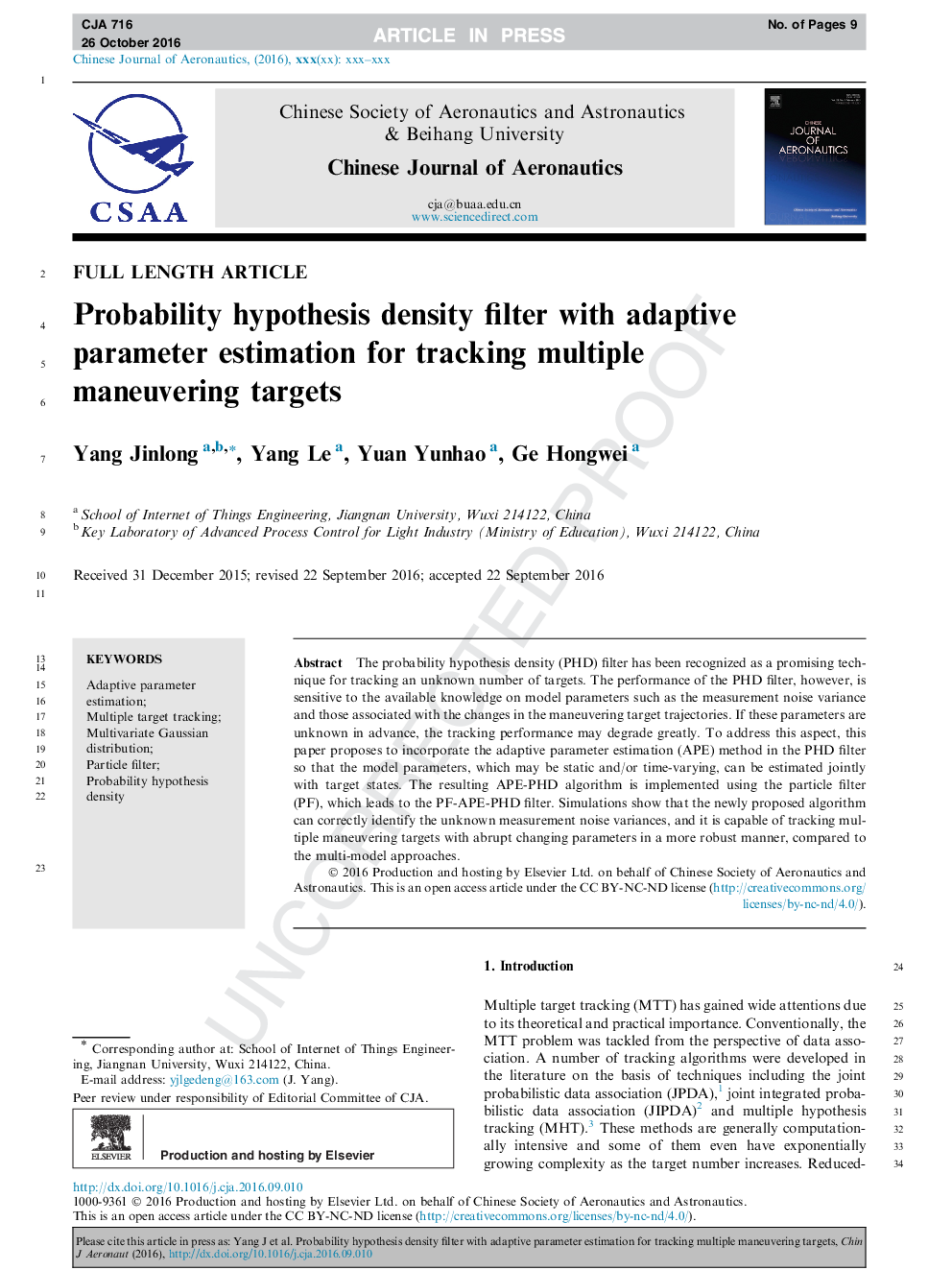| Article ID | Journal | Published Year | Pages | File Type |
|---|---|---|---|---|
| 7154284 | Chinese Journal of Aeronautics | 2016 | 9 Pages |
Abstract
The probability hypothesis density (PHD) filter has been recognized as a promising technique for tracking an unknown number of targets. The performance of the PHD filter, however, is sensitive to the available knowledge on model parameters such as the measurement noise variance and those associated with the changes in the maneuvering target trajectories. If these parameters are unknown in advance, the tracking performance may degrade greatly. To address this aspect, this paper proposes to incorporate the adaptive parameter estimation (APE) method in the PHD filter so that the model parameters, which may be static and/or time-varying, can be estimated jointly with target states. The resulting APE-PHD algorithm is implemented using the particle filter (PF), which leads to the PF-APE-PHD filter. Simulations show that the newly proposed algorithm can correctly identify the unknown measurement noise variances, and it is capable of tracking multiple maneuvering targets with abrupt changing parameters in a more robust manner, compared to the multi-model approaches.
Keywords
Related Topics
Physical Sciences and Engineering
Engineering
Aerospace Engineering
Authors
Yang Jinlong, Yang Le, Yuan Yunhao, Ge Hongwei,
